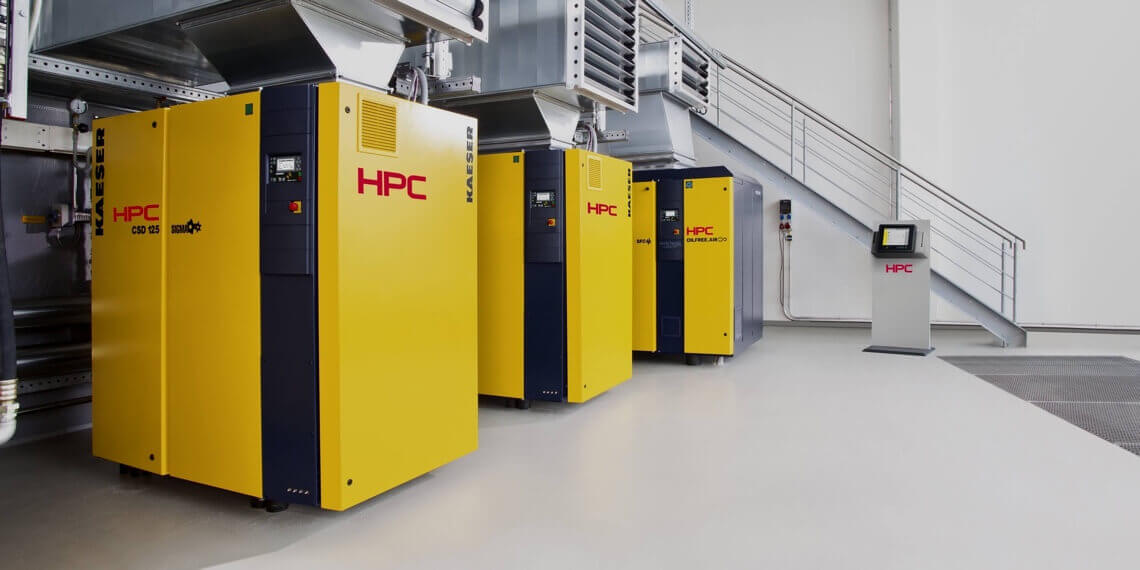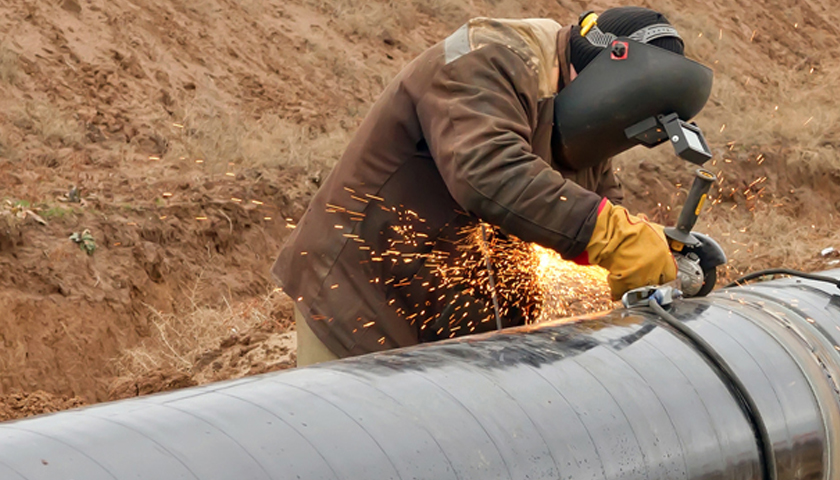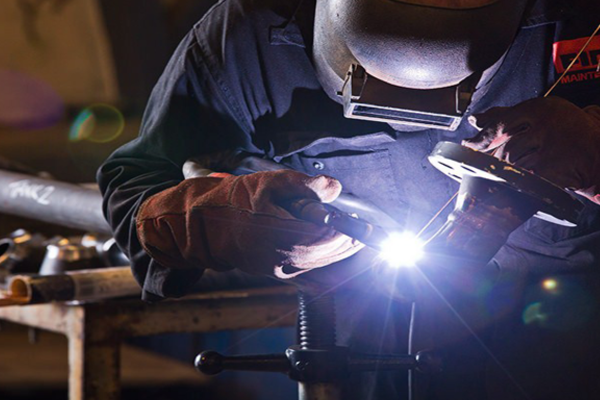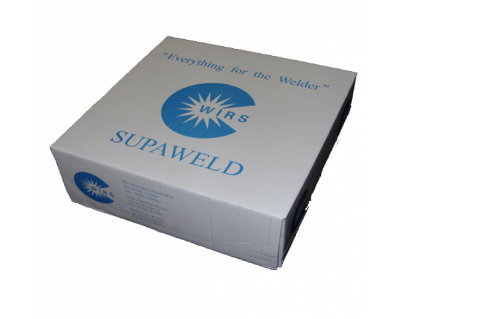A rotary-screw compressor is used where large volumes of high-pressure air are needed. These types of compressors are the workhorses behind a majority of manufacturers worldwide. They allow you to get a reliable compressed air source for your factory.
An industrial rotary screw compressor can run 24/7 without a break, and usually works better and lasts longer when it’s used in that way. In comparison, a piston compressor normally works better when it can take a break – it prefers an intermittent duty cycle. The rotary can go all day without stopping – it doesn’t like starting and stopping constantly.
How does a screw compressor work?
A typical rotary screw air compressor has two interlocking helical rotors which are contained within a housing. Air comes in through a valve, and is taken into the space between the rotors. As the screws turn, they reduce the volume of the air, which in turn increases the pressure.
Rotary screw compressors can either be oil-flooded or “oil-free.” Oil-free is in quotation marks because oil-free compressors don’t provide oil-free air (there’s oil in the air around us). However the difference is that with oil-free rotaries there is no oil in the compression chamber.
In an oil lubricated rotary screw compressor the male rotor is driven by the motor or engine, and the female rotor is driven by the thin film between it and the male rotor. The oil seals the compression chamber and acts as a coolant.
An oil-free rotary screw compressor includes a set of gears which control the timing between the male and female rotor. There is no oil to seal the chamber, so without multiple stages you cannot achieve as high as a pressure as you can with an oil-lubricated one. Furthermore there is no cooling oil, which means that they run hotter decreasing the efficiency. Because of this oil-free rotary screw compressors are usually limited to special applications.
If you would like to know more about rotary screw compressors TCAS are specialists in compressed air. Find out more at https://www.tcascompressors.co.uk





